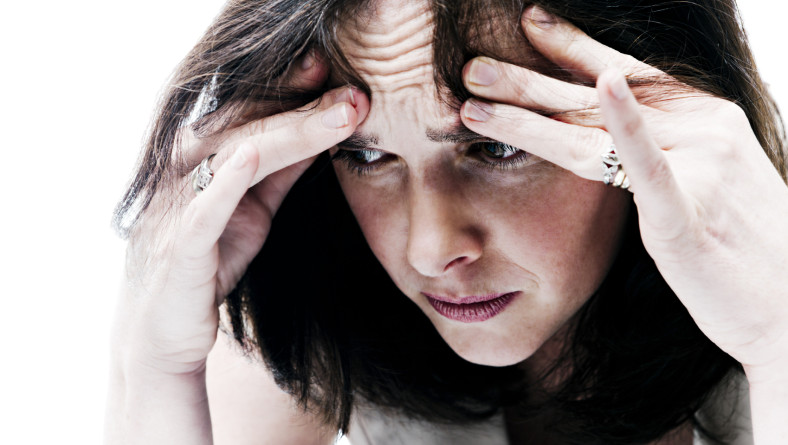Do you feel nervous for no particular reason? Do you find yourself avoiding things you once enjoyed? You might worry about what you’ve said or done, or play things over in your mind again and again.
We all experience anxiety from time to time. Anxiety is a normal reaction to a stressful situation or perceived threat. Typically, our anxiety goes away once the situation has passed. However, if we feel extremely anxious for much of the time or for no particular reason, it can significantly impact on our emotional well-being and day-to-day functioning.
Collectively, anxiety disorders are one of the most common mental conditions in both adults and children. While there are various manifestations of anxiety, the six most common types of anxiety disorders are panic disorder, post traumatic stress disorder, generalised anxiety disorder, obsessive compulsive disorder, social anxiety disorder and specific phobias.
We all experience anxiety differently. For some of us it might interfere with a particular aspect of our life, while for others it might be all-consuming. It isn’t always easy to understand what someone with anxiety is truly going through, and for people who experience it, it isn’t a particularly easy experience to describe. Below, are some common experiences that people with anxiety have shared with me over time.
Anxiety can be physically and emotionally exhausting
This isn’t surprising given the brain thinks there’s a real threat and activates the sympathetic nervous system. It’s a process where the body gets ready for fight or flight. Nerve messages and stress hormones make organs such as the heart and lungs work faster. We can experience a number of unpleasant bodily sensations when this process happens, including heart palpitations, shallow, fast breathing, excessive sweating, difficulty swallowing and trembling. If our sympathetic system is continually being activated in such a way, and we’re constantly on guard, it puts strain on our body and mind and leaves us feeling depleted and exhausted. For example, you might wake up feeling exhausted after sufficient sleep. Or you might feel like you’re always ‘on’ and can’t reach a deep state of relaxation. This can sometimes lead to burnout.
Anxiety can give the sensation of being out of control
When anxiety is severe, we might feel a sense of not having control, of powerlessness. For some of us it can feel like we’re going crazy or about to die. Feeling like we don’t have control over persistent irrational thoughts or our body sensations can feel very disturbing and can disrupt our memory function as well as our concentration and our sleep. When anxiety is extremely severe, it can lead to a panic attack.
When we feel out of control we might become more hyper-vigilant or try to control our environment. We might also try to control other people. This controlling behaviour might feel like the only way of regaining what we perceive is a loss of control. This can sometimes look like someone’s inflexible when really they might just be trying to hold it together internally. Another way we might try to regulate uncomfortable feelings associated with anxiety might be through eating, drinking, gambling, drugs or having sex. While these are easy and accessible ways to self-soothe that provide quick relief from uncomfortable symptoms, they can leave some people vulnerable to addictive behaviours.
It’s so annoying, I’m a rational functioning adult and I know what I’m feeling is irrational, but I can’t stop the feeling. Sometimes, when it gets real bad, I feel like I’m going to lose it, or that I might do or say something that I’m going to feel embarrassed about.
Anxiety can make some individuals avoid activities they would usually do
Some of us avoid doing things or being in situations that make us anxious. Less often, some people avoid so many areas of life that they get to the point where they rarely or never leave their home. Avoiding things reinforces that the fear is real and we don’t learn to tolerate and regulate the uncomfortable thoughts and feelings.
It’s easier to stay home. I don’t know what to say to people and it’s hard to enjoy myself. My symptoms are palpable. Even worse, I worry about having a panic attack.
Anxiety brings on a number of somatic symptoms
We might experience somatic symptoms such as headaches, stomach aches, nausea and vomiting. When emotions are intense and the fight-flight response kicks in, the physiological and neuroendocrine changes can cause gastrointestinal distress and headaches. If somatic symptoms are constant, they can disrupt a person’s exercise routine as well as food intake and eating patterns. Together, these factors can make us feel even more tired and ultimately weaken our resolve to manage the anxiety.
When I haven’t slept well and I’ve had a headache for days, the last thing I want to do is exercise or think about what I’m going to eat. I end up snacking on junk or not bothering at all, which makes me feel worse about myself.
Anxiety can be a lonely place to be
When we have anxiety, we can feel very alone. We might worry that friends or family won’t understand what we’re going through and that they’ll judge us. This can make it difficult for people with anxiety to reach out.
It’s hard to believe that others will understand why I’m like this, especially when I don’t even get it. I’m sure they think I’m silly and that I’m overreacting and that I should just get over it. I’d love to be able to do that.
Anxiety treatment
Anxiety is a complex condition that can affect many areas of a person’s life. It often co-exists with other conditions such as depression and can impact negatively on how someone sees themselves. The research indicates that there are wide range of indicators related to the risk of developing anxiety disorders. These include early life experiences, personality factors, trauma, health problems and ongoing stressful events such as relationship problems, loneliness or job stressors.
Treatment for anxiety can involve short or long-term therapy depending on the type of anxiety. Research has shown that cognitive-behavioural therapy (CBT) can be a highly effective treatment for some anxiety disorders. CBT involves identifying and reframing unhelpful thoughts while developing healthy coping skills. Behavioural aspects might include practising relaxation and learning to regulate your breathing. Other forms of treatment might include processing underlying issues that might be contributing to anxiety, as well as building self-esteem, mindfulness and medication. Staying connected to friends and family is important, as is seeking help from a psychologist or health care practitioner when needed.
If you like my posts and would like to see more, connect with me on Facebook and Twitter.
Maria Scoda is a clinical psychologist in Sydney CBD.
This post is an opinion piece and is for informational purposes only. It does not address people’s individual circumstances or needs and it is not a substitute for professional help. Please see a health care professional if you are struggling. External links have been provided for convenience. They are created and maintained by other organisations and I cannot control or guarantee the accuracy, relevance, timeliness, or completeness of this outside information.






No Comment